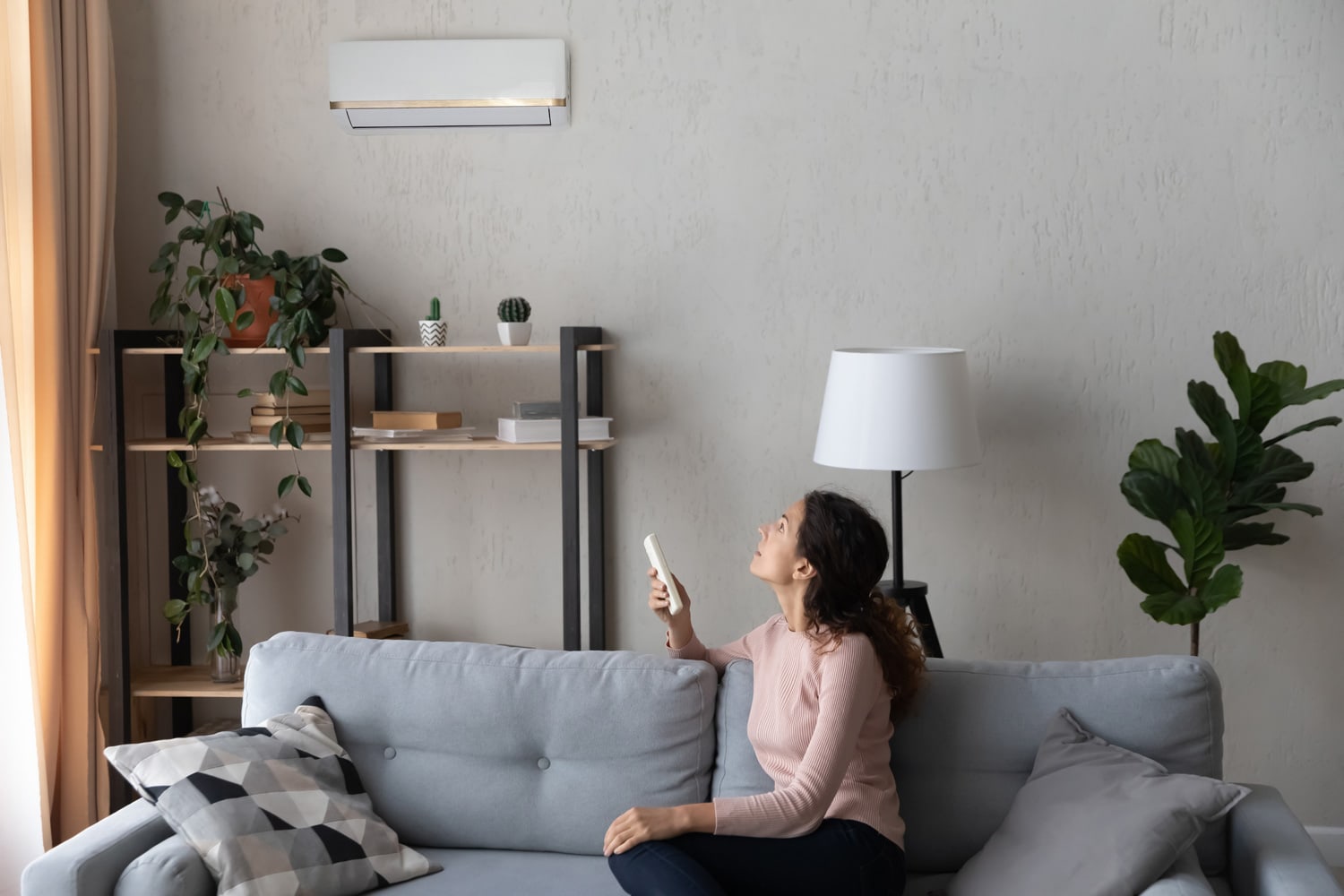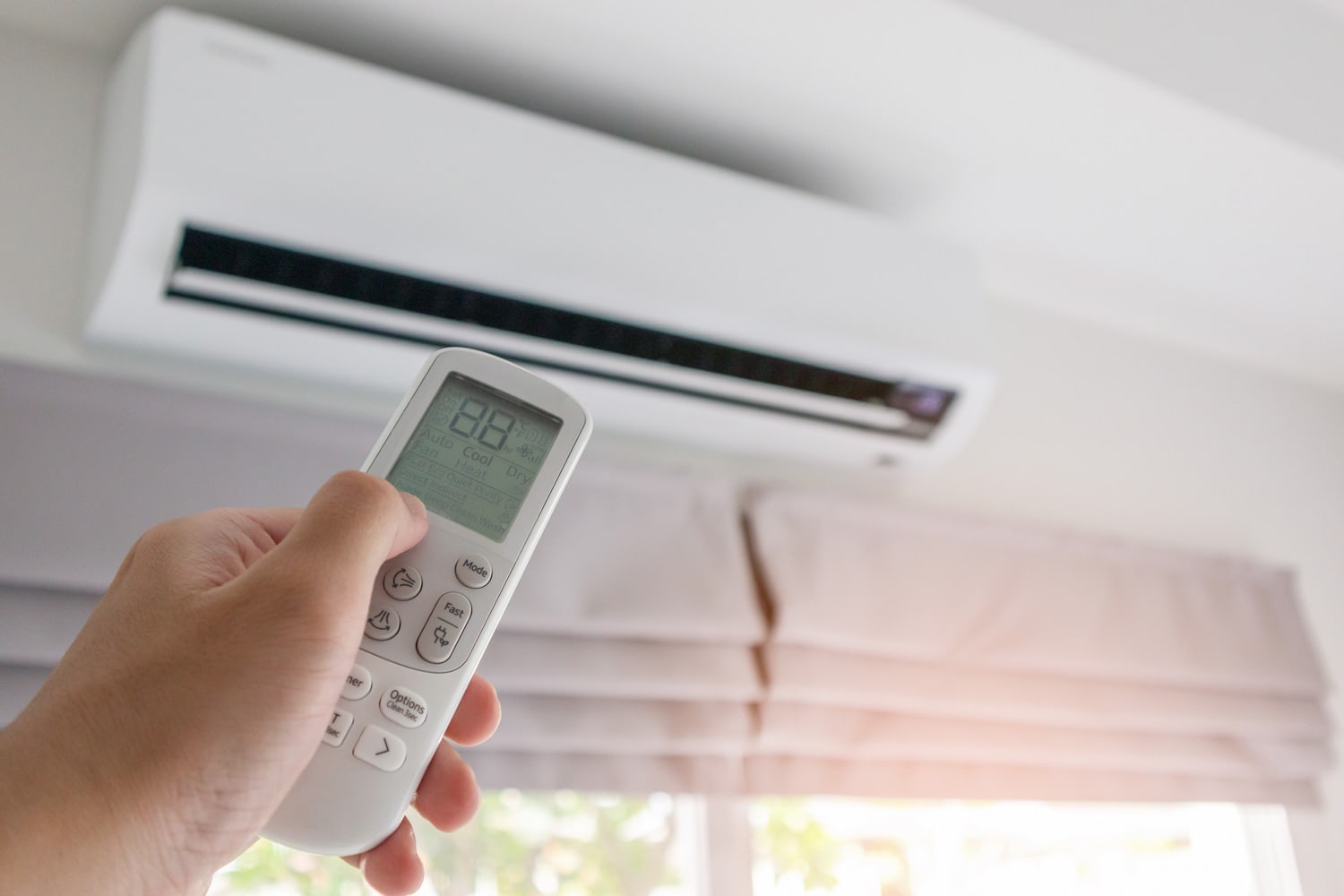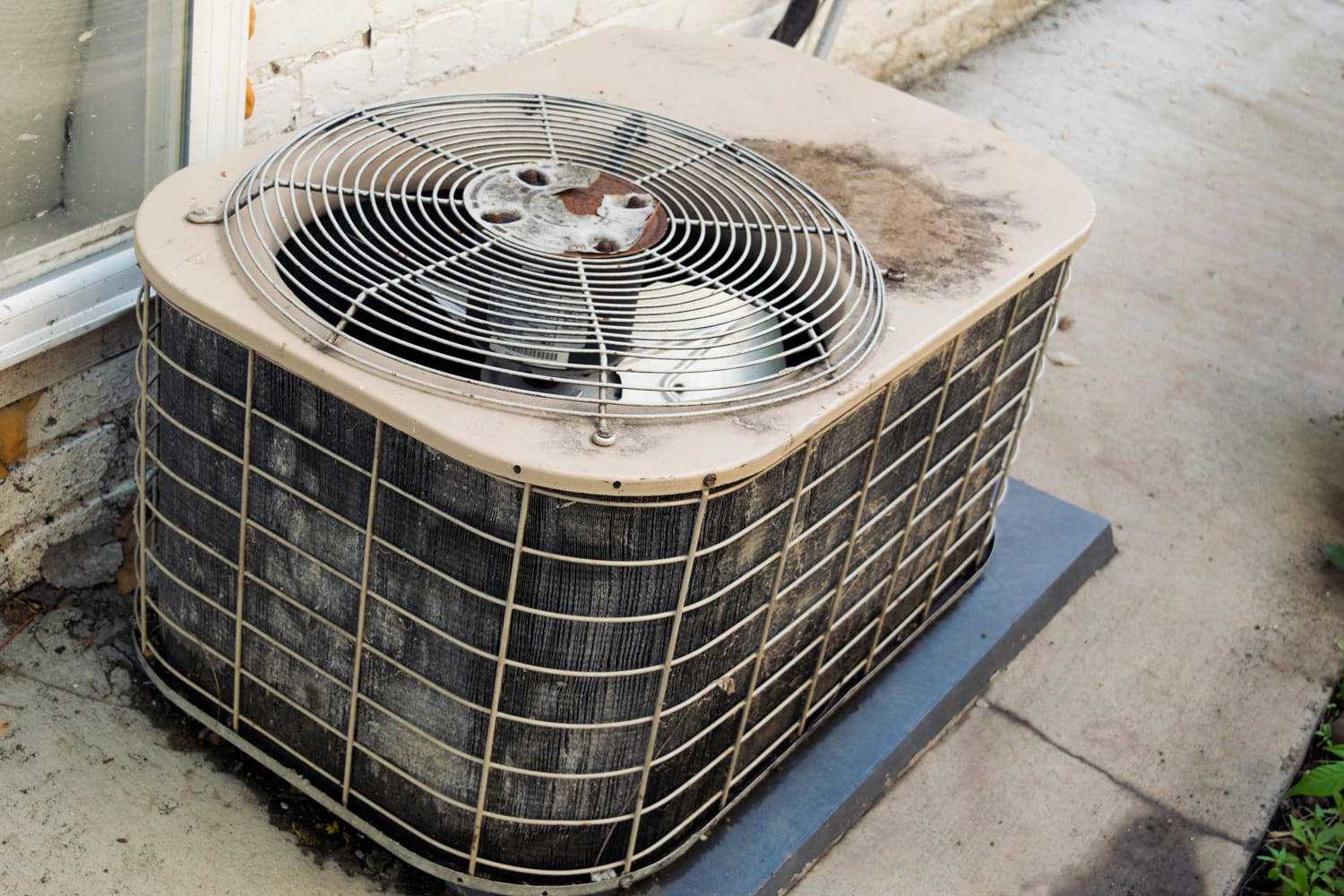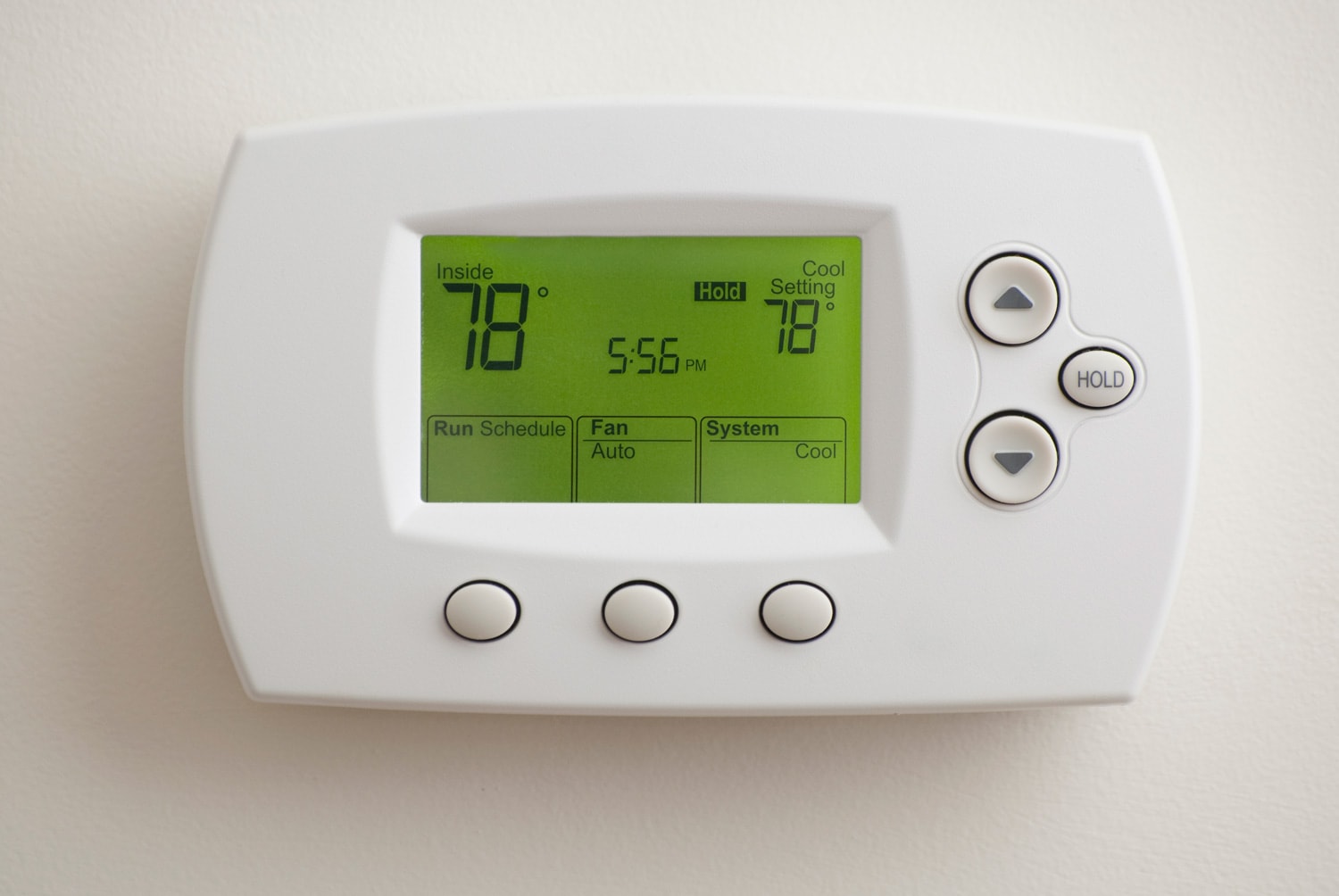Nothing is more frustrating than sitting in a warm house while temperatures outside are getting hotter, especially if you have an air conditioner that is supposed to keep your home cool and comfortable. When the temperature rises and your air conditioner can't keep up with the heat, you might want to get it fixed as quickly as possible. But how do you start though? We did thorough research on the topic, and here's what we found.
When your AC can't keep up with heat, you need to check the following:
- Your air filter
- The thermostat setting
- Your condenser coils outside
- The refrigerant
- Ductwork leakage
Knowing the reasons why your AC can't keep up with the heat can help you evaluate and apply the necessary precautions. Continue reading as we dive deeper and learn what to do about these issues.

Why Can't My AC Keep Up With The Heat?

Your air conditioner may have a problem that requires diagnosis and repair by a certified HVAC contractor. However, you might be surprised to hear that the problem isn't necessarily caused by your air conditioner.
The neglected routine maintenance of your AC unit, poor house insulation, and allowing the intense heat of the sun to enter your house are possible causes of your AC unit problem. During summer, insulation helps to keep hot air out and cold air stays in. If you don't have sufficient insulation in your home, you'll likely have a lot of leaks.
In addition, over-accumulated heat due to unprotected or unsealed windows will significantly affect the faster cooling of your room and even increase AC expenditures significantly.
Troubleshooting Guide
You don't have to wait for the problem to get worse. Follow these steps below if your air conditioner is not keeping up with the heat of the season:
1. Check Your Air Filter
When you detect a drop in air conditioning performance, you should act immediately to examine your filter. If the air filter in your AC system is badly clogged with dirt, it will drastically impair cooling. To avoid this, remember to change and clean the filter regularly every 2 weeks.
How To Clean Your AC Filter
- Turn off the air conditioner to avoid unclean air travel around your home.
- Take the filter out, because some systems have numerous filters, make sure to inspect all AC units.
- Vacuum the filter, to limit the amount of dirt buildup, start by vacuuming with a hand vacuum to remove debris and wipe away any dust from the frame with the microfiber towel.
- Now wash the filter, rinse the filter gently in a deep sink or outside with your hose, then dry it.
- Examine the dry filter for evidence of wear and tear, such as holes, dirt that could not be removed completely, or rips in the material. Then put it back in the unit if it's in good condition. Make a note of when the product or its original packaging expires and when it needs to be completely replaced.
Watch this Youtube video for a demonstration on how to properly clean your AC filters:
2. Check The Thermostat Setting
Turning the thermostat down won't help your air conditioner cool your house faster. Rather, it will intensify the workload of your air conditioner. This means that your air conditioner will consume more energy and cost more to operate to attain the temperature you set on the thermostat.
3. Check Your Condenser Coils Outside
An air conditioner does not produce cold air; rather, it takes heat from the air and thereby lowers the temperature. This magic happens in the exterior unit called the condenser. The unit will not be able to discharge the heat it needs to cool your home. When the condenser coils get clogged, it will require immediate cleaning maintenance. Regular cleaning will prevent the clogging problem from recurring.
4. Check If Refrigerant Is leaking
For your air conditioner to perform properly, the refrigerant level must remain constant. If refrigerant develops leaks along refrigerant lines, the refrigerant will escape and the air conditioner will be unable to deliver adequate cooling. Worst, the loss of refrigerant will eventually harm the components inside your AC system.
5. Check For Ductwork Leakage
The issue could be with the ventilation system's ducting, rather than the air conditioner. Cooled air escapes and humid, heated air enters through duct breaches. This not only results in less effective cooling but also wastes energy because 30% of the air you've already paid to chill escapes before reaching the rooms.
Factors To Consider

If the step-by-step guide we have provided above will not effectively address your air conditioner concern, you will have to look into whether or not you have these conditions:
The Right Size Of AC
When people talk about the size of an air conditioner, they aren't referring to the physical measurements of the unit. Rather, it refers to the cooling capability of BTUs (British Thermal Units).
Whether you choose a window air conditioner or a central air unit, choosing based on the size of the area to be cooled will provide the most efficient and hence lower operating expenses. To determine the appropriate air conditioner size for you, first, calculate the square footage of the home spaces served by the air conditioner.
Your AC Is Too Old
It may be your air conditioning system is too old and simply cannot keep up anymore with the performance it's supposed to have. And so, your AC unit can no longer keep up with the heat.
Most central air conditioners have a 10 to 15-years lifespan. It's not worthwhile then to continue investing money in a system that is more than 15-years old. If your air conditioner hasn't kept up with the heat for the past 15-years, we recommend calling in HVAC professionals to replace it.

Attic Is Well Insulated
Whether your air conditioner is in the attic or outside, the solution is the same: make sure your home is well-insulated against extreme heat and cold. Doing so will help your AC not to work as hard if you can keep the radiant heat from your attic from reaching the conditioned regions of your home.
Covering Your Windows To Block The Sun
When installing a window air conditioner, you should also consider the heat of the sun. The AC unit will have to work harder to keep you cool if you set it in a window that gets direct sunlight during the hottest portion of the day. Air conditioning is a necessity in the summer, but running it continually will cause you high utility bills.
These window treatments such as awning, shades, curtains, and drapes, can help keep your home cool while keeping your bills low.

Awning
According to the DOE, window awnings can minimize solar heat intake by up to 65% on south-facing windows and 77% on west-facing windows. Choose awnings in light hues that reflect more light for the best benefits. In the winter, retractable awnings can be rolled up to allow the sun to warm your home.
Curtains And Drapes
To avoid heat gain on hot summer days, close curtains on windows that receive direct sunlight. Medium-colored drapes with white-plastic backings can minimize heat gains by 33%, according to studies.
Window Shades
Window shades are one of the simplest and most effective ways to save energy when placed properly, but they must be drawn all day to ensure effectiveness. Install them within the window frame as close to the glass as possible to create a sealed area.
Reversible shades with a white side and a dark side can be switched out according to the seasons, with the white side reflecting the sun in the summer and in the winter, the dark side should be absorbing the heat.

Geographical Location
The type of air conditioner you should buy will be determined by your location and the temperature. Your location will have an impact on the Seasonal Energy Efficiency Ratio (SEER) rating you require for your new air conditioner. The SEER number indicates how well your air conditioner pumps out cool air.
In Closing
An AC unit that can't keep up with the heat isn't typically a problem that you can address DIY. There may be several technical issues with an AC that can't keep up with the heat. An AC specialist can best assess each issue and recommend whether any components need to be replaced.
Replacing an air conditioner can be costly, especially replacing it every few years. Performing regular maintenance will help your equipment last longer. Many air conditioner replacements, according to HVAC experts, might have been avoided with routine maintenance.
If you liked this post, you might want to read and learn more about the following topics:
Should You Close Basement Vents In The Summer?
